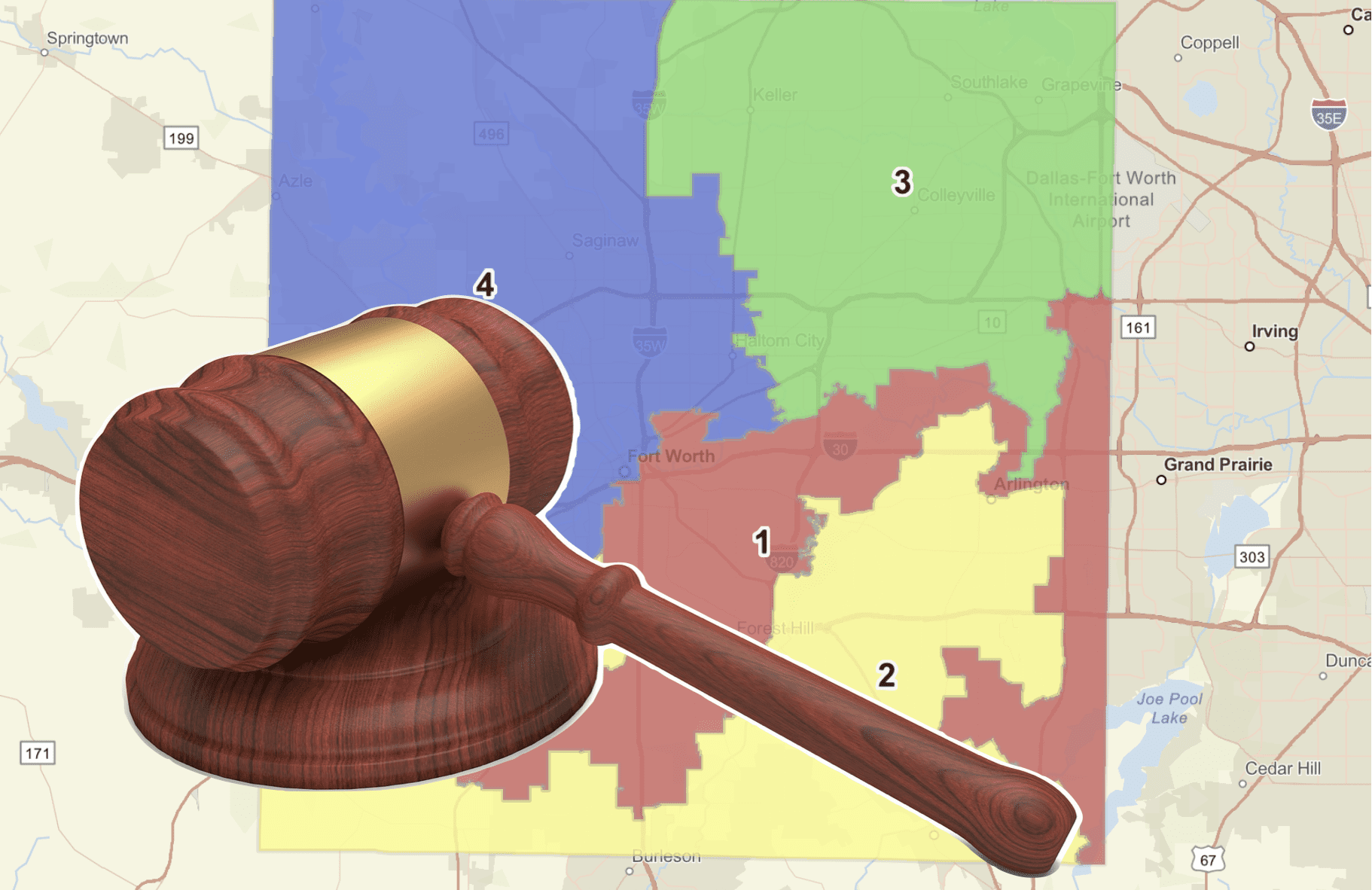A federal court battle continues between Democrats and Republicans over Tarrant County’s newly redrawn commissioners court districts, which are in place for the upcoming 2026 primary elections.
But the case is on hold while the U.S. Fifth Circuit Court considers a preliminary appeal from the Democrat plaintiffs who are challenging the Republican redistricting plan.
Tarrant County’s governing body—a county judge elected at large and four commissioners elected in single-member precincts—approved a new precinct map in June designed to increase Republicans’ partisan advantage from 3-2 to 4-1. Commissioner precincts had not been redrawn since 2011.
Democrat attorneys sued on behalf of several county voters, claiming the new commissioner precinct boundaries were racially gerrymandered to eliminate one of the two existing majority-minority districts—which are both currently represented by Democrats—in violation of the Voting Rights Act and the U.S. Constitution.
Tarrant County defended the map as a permissible partisan gerrymander.
Earlier this month, Chief District Judge Reed O’Connor denied Democrats’ request for a preliminary injunction, which would have blocked implementation of the redistricting plan while the case is litigated.
Judge O’Connor concluded that the plaintiffs’ racial discrimination claims are unlikely to succeed on the merits, citing “a dearth of evidence.”
The plaintiffs appealed.
On Tuesday, O’Connor issued a stay of the proceedings in district court pending the appellate court’s decision regarding the preliminary injunction.
Meanwhile, the new district boundaries remain in effect for the March 2026 primary elections, during which two commissioners and the county judge will be on the ballot.
Candidate filing begins November 8.
Hoping for a resolution prior to the filing period that would force the county to use the old map, the plaintiffs asked the Fifth Circuit to expedite the appeal and render a decision by October 31.
Tarrant County opposed that request, calling it an attempt to “short-circuit the ordinary appellate process” and noting that courts changing voting rules too close to an election conflicts with longstanding federal precedent.
In a document filed with the Fifth Circuit on September 19, attorneys representing the county argued that the ordinary appellate schedule is “fully sufficient” to resolve Democrats’ appeal.
They also stated that denial of a preliminary injunction is reviewed only for abuse of discretion, which they assert plaintiffs did not prove.
“Chief Judge O’Connor carefully evaluated each of Plaintiffs-Appellants’ claims in detail, addressing both the factual record and the relevant legal standards,” wrote attorney Joe Nixon with the Public Interest Foundation, representing Tarrant County in the redistricting case.
Far from disregarding their allegations, the court explained at length why injunctive relief was unwarranted as to each claim. Judge O’Connor even used the term “dearth of evidence.”
Plaintiffs-Appellants’ dissatisfaction with the reasoned ruling that there was no likelihood of success does not transform it into an abuse of discretion requiring emergency relief or an expedited appeal.
Tarrant County’s attorneys concluded that the plaintiffs failed to demonstrate a likelihood of success in their appeal and that compressing the appellate schedule would “compromise the Court’s deliberative process without any corresponding necessity.”
Additional court filings are expected in the coming weeks.





